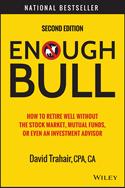
Author and US-based gold guru Peter Schiff is teaming up with a Canadian gold fin-tech company — Goldmoney Inc. — in a deal both parties expect will accelerate the firm’s growth into “millions” of users seeking a “real-money” alternative to the “fiat” currencies of the world’s central banks.
Initial details were revealed on Friday, when Toronto-based Goldmoney Inc. (trading as XAU on the TSX), announced its plan to acquire Schiff Gold Inc. (SGI) and form a marketing and service agreement with Schiff (pictured left).
The Hub last looked at Goldmoney and its Bitgold in this post in March: BitGold: a cure for savers frustrated with low or negative interest rates? The link also contains my blog on this for the Financial Post.
And we looked at a couple of recent books on the soaring gold price in a Hub post in June. You can find the review, which includes Schiff’s The Real Crash, in this Hub review titled The New Case for Gold. The link also contains my blog on this for Motley Fool Canada.
The Goldmoney release describes Schiff Gold Inc. (“SGI”) as a “private, US-based dealer in precious metals” that was launched in 2010 under the name Euro Pacific Precious Metals. It in turn was described as “one of the largest and fastest growing retail gold dealers” that services a large client base with buy and sell orders for precious metals, storage and vaulting arrangements and gold & silver IRA arrangement services.”
Schiff is the “LeBron James of the gold market”





